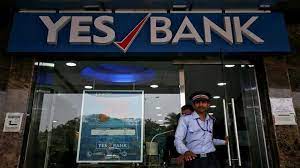MUMBAI (Reuters): India’s Yes Bank (YESB.NS) sees scope to expand its net interest margin by 100 basis points over the next three years by raising more low-cost deposits and lending to higher-yield clients, its managing director and CEO told Reuters on Wednesday.
The push to improve net interest margins (NIM), together with lower loan-loss provisions, is part of an effort to boost profitability at the lender, which was rescued by a consortium of state-owned entities and private banks in 2020 after a dramatic rise in toxic assets.
For the January-March quarter, Yes Bank reported a NIM of 2.8%, up 30 basis points from last year but below that of larger private lenders such as ICICI Bank and HDFC Bank, which have margins of more than 4%.
“We would aim to improve the overall ratio of current account savings account (CASA) deposits further. There is a huge opportunity available there,” Prashant Kumar said.
CASA deposits made up 30.8% of its total deposit base.
Yes Bank is also counting on higher fee income growth to help improve margins, he added.
In addition, it is focusing on lending to clients that can bring in higher margins. These may be retail or corporate clients placed just below the highest-rated borrowers but those who still do not entail a large risk, he said.
“There will definitely be assets that could be rated BBB, but their risk is not high. There, we will get pricing power,” the MD added.
The BBB rating is given to securities deemed to have a moderate degree of safety when it comes to meeting financial obligations on time.
As a way to boost priority sector lending, the bank is evaluating the acquisition of a microfinance lender this year, Kumar said.
Meanwhile, Yes Bank is targeting a credit growth of 15% to 20% for fiscal 2024.
It is also expecting bad loan recovery of at least 50 billion rupees from the transfer of bad loans worth 480 billion rupees to private equity firm J.C. Flowers, he said.
The share lock-in period for the consortium that invested in Yes Bank as part of the rescue plan ended in March this year. However, large shareholders, including State Bank of India (SBI.NS), have not yet sold their stake, Kumar added.







